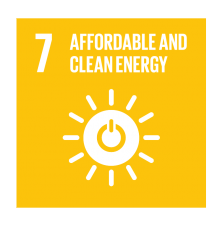Unexport contributes its help to the environment
It is essential that companies like Unexport are committed to developing processes and products that respect the environment and sustainability.
The social demand, through consumers, clients, Public Administrations, suppliers, and workers themselves, among others, and the demands that companies suffer in the field of the Environment, cause them to be in need of undertaking environmental improvement projects.
Last April 2020 Unexport published the 2019 Progress Report, a document that describes the efforts dedicated to applying the establishment of the ten Principles (in the field of Human Rights, Labor Standards, the Environment and the fight against Corruption) and getting involved with the United Nations Global Compact, in addition to generating actions linked to the 2030 Agenda and the Sustainable Development Goals (SDGs).
In this complete document, published on the web, you can find which areas or aspects of the company are being reviewed, their relationship with the SDGs and what actions have been carried out to link Unexport to the 2030 Agenda. The report is based on the reporting methodology by stakeholders, and one of them, the Environment is the one that we are going to share in this article.
 Regarding Unexport’s relationship with the environment, the report focuses on two key aspects: the entity’s consumption and the sustainable use of resources and technologies that respect the environment, both linked to SDG number 12, responsible production and consumption.
Regarding Unexport’s relationship with the environment, the report focuses on two key aspects: the entity’s consumption and the sustainable use of resources and technologies that respect the environment, both linked to SDG number 12, responsible production and consumption.

 Unexport to know this impact, it has examined the level of incidence that its activities have, beyond the size of the organization, has evaluated the environmental impacts and the level of incidence, in addition to its fight against climate change. This has required the in the company’s operations, as well as the commitment of management, the measurement and evaluation of impacts, the development of processes and products that respect the environment, and dialogue and awareness raising with initiatives that promote sustainability.
Unexport to know this impact, it has examined the level of incidence that its activities have, beyond the size of the organization, has evaluated the environmental impacts and the level of incidence, in addition to its fight against climate change. This has required the in the company’s operations, as well as the commitment of management, the measurement and evaluation of impacts, the development of processes and products that respect the environment, and dialogue and awareness raising with initiatives that promote sustainability.









